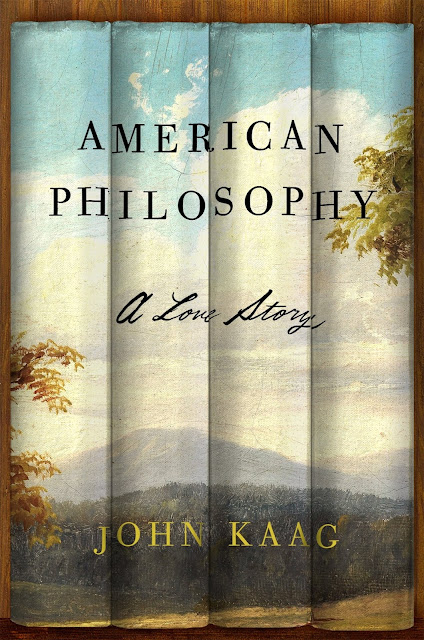Ok, obscurists today, we’re getting introspective, philosophical, and a little romantic with John Kaag’s book “American Philosophy.”
What I love about this book:
This book gave me a fantastic framework of the most prominent American philosophers and beyond via the frame story—well, really—Kaag’s memoir of discovering the Hocking library at West Wind and then restoring the rare books he found there. He describes numerous American luminaries and their personal philosophies on life and a variety of other topics. It all works as a survey of great American thinkers.
It was because of this book that I was first introduced to Henry David Thoreau’s work. Thoreau is a writer I can’t imagine I would have stumbled upon naturally by myself and someone I now greatly admire, despite him being a bit of a misanthrope. So this book did something that is one of my absolute favorite things about reading; it gave me a direction for further reading and the opportunity to discover new vistas outside of my view of the world.
Kaag isn’t limited to just American philosophers. He mentions great thinkers of other countries and cultures and creates a web of ideas and counter ideas, painting a mental landscape for you of the different approaches and schools of philosophy. He’s even good for the occasional reference to classic up to modern-ish literature, making him a sort of one-man walking library.
I found it interesting how Kaag developed and grew as a person—thankfully into a better person—as the book went on, and he and Carol restored and cataloged more and more of the books in the library. As it grew, too, their relationship was cute as well, and I rather enjoyed the romance between the two rival philosophy scholars. In fact, my favorite parts of the book were the bits with Carol, and while it’s a bit of a treacly cliché—I do feel she helped the author to be a better person.
What I don’t love about this book:
So Kaag is the protagonist of this narrative—it is his memoir after all—and while I appreciate him not sugar coating how insufferable he was as a young man, it doesn’t make him any less unbearable. This is especially true of him describing how his first marriage fell apart, which might not have been entirely his fault, but who sells their wedding band before they have the divorce conversation? Like—what was the plan there? This is really a thing I don’t like about the man, but a large part of this book is about him personally, so I feel it’s valid to bring up.
There is a certain amount of pretentiousness and angst in this book, especially in the early chapters—that Kaag mostly moves beyond as the Hocking library project progresses. Still, a spade is a spade, and I definitely rolled my eyes at the beginning of the book several times.
This preview is an Amazon Affiliate link;
as an Amazon Associate, I earn from qualifying purchases.
Author's Website: https://johnkaag.com/
Parting thoughts:
I find it to be a bit of an irony that Kaag’s love story with Carol is what honestly seems to turn him around as a person, and sure, I get that the title of this works with a double meaning. The title implies that it’s also a story of his love for philosophy, but he was well-read before his relationship with Carol, and it’s not like that made him a better person. It may have helped, but it doesn’t seem to have done the trick alone. It’s ironic because a lot of American philosophy revolves around independence, self-actualization, self-reliance, and so on and so forth to a possible over macho extreme. We Americans—past and present—have never been known for our gifts of subtlety.
That being said, I believe, despite some claims that we have no “real” culture of our own, I do feel that American culture has had a lot to offer the world. I credit this book with sparking my interest in the men and women who lived, thought, and wrote in America, especially in the 19th to early 20th century, which is a time often overshadowed by such concerns as war—both civil and world flavors—and economic depression. It’s easy to overlook that great American writers concerned themselves with more than just war and money, but with the entirety of the human experience. Typically, when one hears philosophy or ethics, it’s predictable to think of the Greeks or Europeans before America, but that doesn’t mean there weren’t erudite scholars here too.


No comments:
Post a Comment